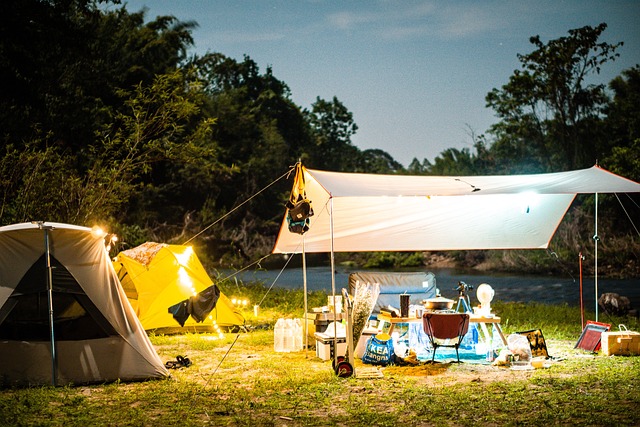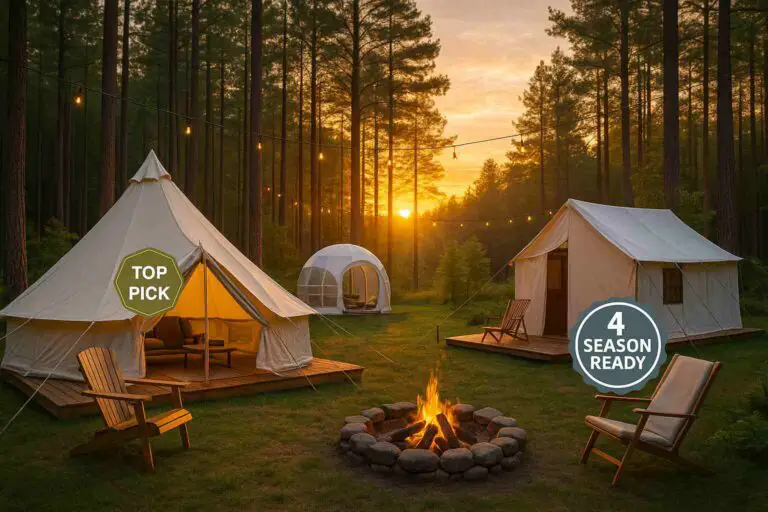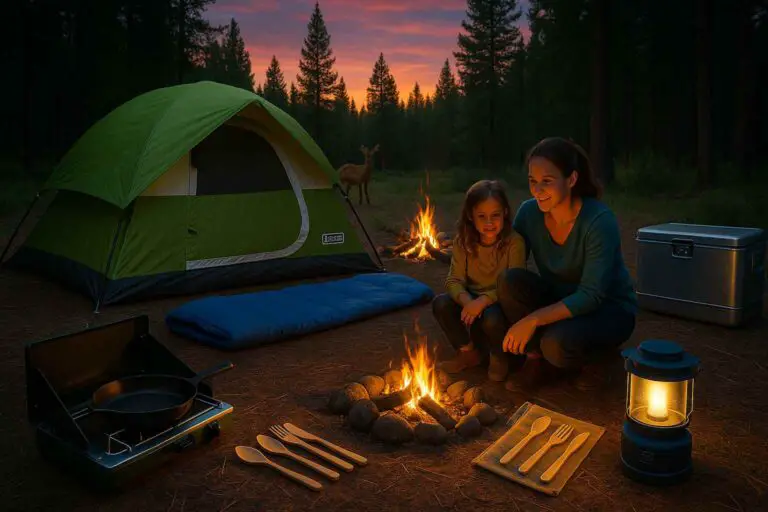Camping is a popular outdoor activity that allows people to disconnect from their daily routines and immerse themselves in nature. However, with this enjoyment comes the responsibility of respecting the environment and fellow campers. This is where camping etiquette comes into play. Camping etiquette refers to the unwritten rules and practices that govern behavior while camping. Following camping, etiquette is essential to ensure that everyone has a positive experience and to preserve the natural environment for future generations. In this guide, I will discuss the dos and don’ts of camping etiquette, which will guide you on how to respect nature and fellow campers while enjoying the outdoors.
Let’s dive in!
Dos of Camping Etiquette
1. Leave No Trace Camping is all about immersing oneself in nature.
It’s important to leave the environment as you found it or even better. Leaving no trace is the most fundamental principle of camping etiquette. It means not leaving any garbage, food, or human waste behind. Here are some tips for leaving no trace:
- Pack in, pack out: Bring all your trash and garbage with you and dispose of them properly in designated trash cans.
- Dispose of waste properly: Use designated toilets or latrines, or dig a small hole at least 200 feet from water sources to bury human waste.
- Respect wildlife: Observe wildlife from a distance and avoid disturbing them. Do not feed them as it can alter their natural behavior and cause harm to their health.
2. Follow Campground Rules
Each campground has its own set of rules and regulations, which campers should abide by. These rules are in place to protect the environment, ensure camper safety, and provide a peaceful experience for all. Here are some rules to follow:
- Keep noise to a minimum: Be respectful of other campers and keep noise to a minimum, especially during quiet hours.
- Respect campsite boundaries: Do not encroach on neighboring campsites or move other people’s belongings.
- Follow fire safety rules: Use designated fire pits, never leave a fire unattended, and fully extinguish the fire before leaving the site.
3. Be Considerate of Fellow Campers
Camping is a communal experience, and it’s important to be considerate of others. Here are some tips to be considerate of fellow campers:
- Keep pets on a leash: If you bring a pet, keep them on a leash at all times and clean up after them.
- Respect quiet hours: Observe quiet hours set by the campground and keep noise to a minimum during these times.
- Offer to share resources: If you have extra firewood, water, or other resources, offer to share them with your neighboring campers.
Don’ts of Camping Etiquette
While there are several things to do to ensure proper camping etiquette, there are also some things you should avoid doing. Here are some of the don’ts of camping etiquette:
1. Don’t Damage the Environment
Camping is about enjoying nature, and it’s crucial to respect and protect the environment. Here are some things to avoid:
- Stay on designated trails: Do not stray off marked trails or create new paths as it can harm the environment and disturb wildlife.
- Don’t carve or damage trees: Avoid carving or cutting trees, and don’t use them as anchors for your tents or hammocks.
- Don’t litter or leave trash: Dispose of all trash in designated containers, and avoid leaving any food or waste behind.
2. Don’t Disturb Wildlife
Camping is an opportunity to observe wildlife in its natural habitat, but it’s important to do so responsibly. Here are some things to avoid:
- Don’t feed animals: Feeding animals can alter their natural behavior and put them at risk of disease.
- Don’t approach wildlife too closely: Maintain a safe distance from wildlife and avoid disturbing their natural behavior.
3. Don’t Be a Nuisance to Other Campers
Camping is a communal experience, and it’s essential to be considerate of others. Here are some things to avoid:
- Don’t play loud music or make excessive noise: Keep noise to a minimum, especially during quiet hours.
- Don’t intrude on other campers’ space: Respect the privacy of other campers and avoid entering their campsites without permission.
- Don’t leave your campfire unattended: Always keep an eye on your fire and ensure it’s fully extinguished before leaving the site.
Tips for Practicing Good Camping Etiquette
Here are some tips to help you practice good camping etiquette:
- Plan Ahead Before Going Camping. Do some research to learn about the area and any specific regulations or rules you need to follow. Also, plan your trip carefully, pack appropriately, and bring enough supplies, including food, water, and a first-aid kit.
- Educate Yourself about the Area and Its Rules. Different campsites and parks have different rules and regulations. Take some time to learn about the area where you’ll be camping and any specific guidelines or restrictions that apply. This way, you can avoid any unintended damage to the environment and respect the natural habitats of wildlife.
- Respect the Environment and Others. Be mindful of your surroundings and respect the environment by leaving no trace and minimizing your impact. Be considerate of other campers by keeping noise levels low and respecting their privacy and space.
- Be Prepared for Emergencies. Always be prepared for emergencies, bring a first-aid kit and know how to use it. If you’re camping in a remote area, be sure to have a way to call for help in case of an emergency.
- Leave the Campsite Better than You Found it. Makes it a personal goal to leave the campsite better than you found it. Pick up any trash you see, including items that others may have left behind. If possible, leave the campsite looking as natural as possible, so it’s ready for the next campers.
Conclusion
Camping is an enjoyable and rewarding experience, but it comes with a responsibility to respect nature and fellow campers. By following the dos and don’ts of camping etiquette and the tips for practicing good camping etiquette, you can minimize your impact on the environment, ensure the safety and comfort of yourself and others, and make the most of your time in the great outdoors.
Remember, camping etiquette is about more than just following rules. It’s about being mindful of the impact you have on the environment, wildlife, and fellow campers. By practicing good camping etiquette, you can help preserve the natural beauty of our world and create a positive experience for everyone involved.
So, pack your bags, respect the environment, and enjoy your camping trip while following these guidelines. Let’s work together to ensure that camping remains an enjoyable and sustainable activity for generations to come.








